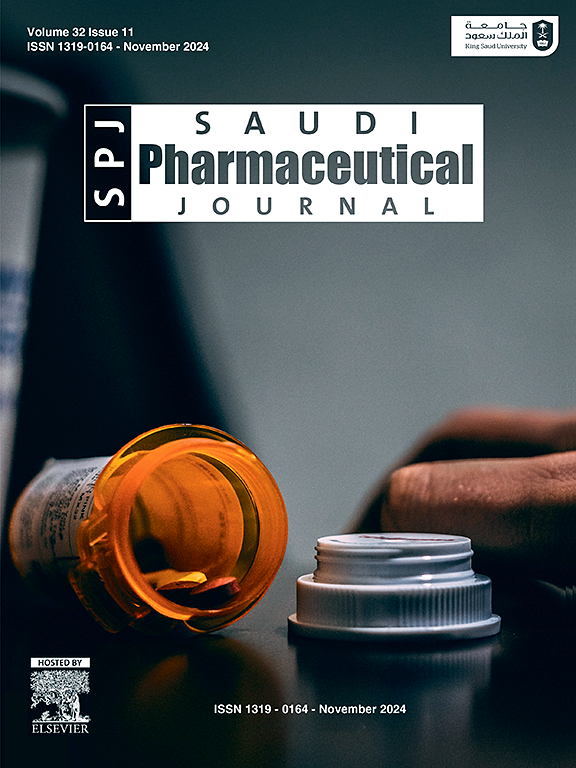代谢组学在慢性萎缩性胃炎诊断及中西医结合中的研究进展
IF 3.4
3区 医学
Q2 PHARMACOLOGY & PHARMACY
引用次数: 0
摘要
慢性萎缩性胃炎(CAG)是一种常见的消化系统疾病,其特征是胃粘膜上皮的反复损伤,有发展为胃癌的潜力。中医以其整体视角和基于辨证论治的治疗方式,为CAG的预防和治疗提供了独特的方法。本文综述了近年来代谢组学在CAG诊断、发病机制和中医防治中的应用进展,为CAG的治疗和预防策略提供新的见解。对2013 - 2024年的文献进行系统分析,重点关注利用代谢组学研究中药对CAG影响的研究。数据来源于著名的电子数据库,包括PubMed和Web of Science。这篇综述强调了代谢组学在识别与CAG相关的生物标志物和代谢途径方面的应用,并说明了中医药通过各种机制影响和改善CAG状况的能力,包括调节肠道微生物群和调节特定的代谢途径。本文综述了代谢组学可以为中医在CAG治疗中的应用提供新的视角,在阐明CAG的发病机制和确定潜在的治疗靶点方面具有重要的潜力。中医与代谢组学的融合预示着CAG个性化治疗的前景广阔。本文章由计算机程序翻译,如有差异,请以英文原文为准。

Metabolomics advances in chronic atrophic gastritis diagnosis and the integration of traditional Chinese medicine
Chronic atrophic gastritis (CAG) is a prevalent digestive system disorder characterized by the recurrent damage to the gastric mucosal epithelium, with the potential to progress to gastric cancer. Traditional Chinese medicine (TCM), with its holistic perspective and treatment modalities grounded in syndrome differentiation, provides a distinctive approach to both the prevention and treatment of CAG. This review aims to encapsulate the recent advancements in the application of metabolomics to the diagnosis, pathogenesis, and the TCM-based prevention and treatment of CAG, offering novel insights into the therapeutic and preventive strategies for the disease. A systematic analysis was performed on the literature from 2013 to 2024, focusing on studies that utilized metabolomics to investigate the effects of TCM on CAG. The data was sourced from reputable electronic databases including PubMed and Web of Science. The review emphasizes the utility of metabolomics in identifying biomarkers and metabolic pathways associated with CAG and illustrates the capacity of TCM to influence and ameliorate CAG conditions through various mechanisms, including the regulation of gut microbiota and modulation of specific metabolic pathways. This review presents that metabolomics can offer new perspectives for the application of TCM in CAG management, demonstrating significant potential in elucidating the pathogenesis of CAG and in identifying potential therapeutic targets. The convergence of TCM with metabolomics heralds a promising avenue for the personalized treatment of CAG.
求助全文
通过发布文献求助,成功后即可免费获取论文全文。
去求助
来源期刊

Saudi Pharmaceutical Journal
PHARMACOLOGY & PHARMACY-
CiteScore
6.10
自引率
2.40%
发文量
194
审稿时长
67 days
期刊介绍:
The Saudi Pharmaceutical Journal (SPJ) is the official journal of the Saudi Pharmaceutical Society (SPS) publishing high quality clinically oriented submissions which encompass the various disciplines of pharmaceutical sciences and related subjects. SPJ publishes 8 issues per year by the Saudi Pharmaceutical Society, with the cooperation of the College of Pharmacy, King Saud University.
 求助内容:
求助内容: 应助结果提醒方式:
应助结果提醒方式:


